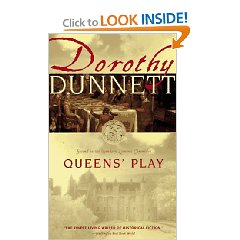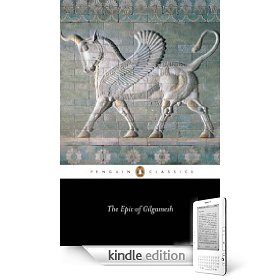I’ve read a lot recently. In fact my to be reviewed pile has gotten a little backlogged. So instead of devoting a separate post to each of the books I read. I’ll just give you a brief sum up of them now.
First up…
Queen’s Play by Dorothy Dunnett

I LOVE Dorothy Dunnett. This is my third re-reading of the second book in the Lymond Chronicles, and it’s still just as great if not better (because I actually know somewhat what’s going on this time). The complexity of her plots, her rich characterizations, and attention to historical detail never ceases to amaze me. It was also great, because this time round a friend of mine was also reading through the series for the first time (and got bitten by the Lymond bug) so I could have someone new to rave to about these books (my husband hears about it from us constantly).
Second…
In Defense of Food by Michael Pollan

Wow. Until I read this I never realized how deceived I had been the food industry, and I’m a certified personal trainer! I literally read this in a state of semi-shock, dazed by the revelation that what I’m told is good for me has nothing to do with my own good and everything to do with the good of food scientists and political food lobbies. I especially realized I had been fooled by health claims on food (Now with antioxidants! Now with Omega-3s!). As Pollan brings out, it’s foolish to try and extract the nutrients we think are responsible for making a certain food healthy. Food is more than the sum of it’s parts. There’s so much at work that we really don’t know why a certain food reduces cancer for example. It just does. So instead of eating fortified “food-like products” we should return to just eating food, real food, mostly plants, and not too much. I highly recommend it.
Number three…
Cleopatra’s Daughter by Michelle Moran

I LOVED this book. (I’ve read a lot of good books recently :)) Clocking in at 448 pages this was supposed to keep me busy for a week that included a road trip and backpacking. Instead I blazed through it in four days (lightning speed for me). With most books after an hour or so I begin to tire and crave a rest from reading, but not with this one. I read it for hours on end without wishing to stop.
Focusing on Cleopatra the VII’s (the one who committed suicide) daughter, Cleopatra Selene, the book follows her early years as a pre-teen and teen in Rome being raised by her father’s ex-wife Octavia (yikes!) and the assorted bizarre family of Caesar Augustus (Octavia’s brother). There’s intrigue, strife, unrequited love, romance (great anti-hero btw!), murder, all the stuff that makes a book fast moving and compelling. However it’s not shallow fluff, a great portion is spend discussing the horrific treatment of slaves and women (who were basically slaves) in ancient Rome.
Incidentally I had always been fascinated by the story of Cleopatra Selene, and had every toyed with the idea of writing a story about her. So initially I was disappointed that someone else had discovered her and written her story. But in all honesty Michelle Moran did a much better job, that I could ever hope to do. This might be my canidate for best novel of the year.
And finally…
A Room of One’s Own by Virginia Woolf

Ok, technically not a book, but an essay, it still deserves mention. This was my first foray into Virginia Woolf’s writing and I was a little anxious, having heard much about her complex style. However after a brief adjustment I was swept along with her in her musings about women writers. I had often noticed that when you look at lists of great books, women so seldom appear. I had blamed this on the fact that they had received very scanty if any education. But Virginia Woolf showed that it was so much more. Women were constantly barraged with the message of their own inability to think or create. They had little control over their lives and were often married off and raising children at a young age. They had no place to go for peace and quiet if they did want to write. Everything was stacked against them. It’s really only been since the beginning of the 19th century that women finally begin to break out of their confinement and express themselves. When we look now at the bookshelves and see how many female writers there are, it’s obvious to see we’ve come a long way in a relatively short period of time.









You must be logged in to post a comment.